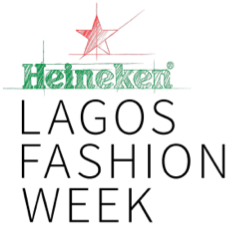
TOGETHER We made so much Happen - Our 2021 At A Glance

2021 is coming to an end and what a year it has been! We started the year cautiously optimistic knowing Covid was still threatening but hopeful there was good news in sight with vaccine rollout plans. As we charted our course for the year while navigating our way through the impact of the pandemic on the economy, it was important we carried with us our many learnings from 2020 as well as our resilient spirit.
In the aftermath of a charged 2020 shaped by a global pandemic, #EndSars protests and a racial awakening across the world, Lagos Fashion Week successfully returned for its tenth edition in its eleventh year. It was great to see the community come back together again either in-person or digitally after being away.
In 2011, when the first Lagos Fashion Week was birthed, bringing together buyers, consumers and the media to view the current collections of designers at a four (4) day event in the fashion capital of Lagos, Nigeria, it was to address the need for a consistent platform for designers to showcase their collections, and the need to shift the conversation from fashion as entertainment to fashion as a business and useful tool for commerce and creativity in Nigeria.
To fulfil this need from end to end, expanding access to market opportunities had to become a focus along with access to funding, incubating and training young talent, facilitating impact driven conversations with key stakeholders as well as being at the forefront of developing our local manufacturing industry through capacity building, becausing to generate lasting impact, it’s important all the actors within fashion’s value chain are given a thorough consideration.
Five years ago, we boldly proclaimed that the continent was ‘Shaping Fashion’s Future’, in response to its increased global spotlight and African designers cementing their strong presence in the ‘Big Four’ fashion capitals. However, in 2021 it was important we reassessed our position, asserting that ‘The Future is Now’, as African owned fashion businesses are at the forefront of the future of fashion which is centered on sustainability, with their natural agility, in built approach to traceability and transparency that is required for fashion business(es) to survive in a post Covid world.
As we attempt to set the tone for the future of fashion, we understand the need for scalability but we are also mindful of the cost that can come with it. The future of fashion for the next decade starts with a commitment from our ecosystem to adopt a functional fashion system that delivers environmental, societal and economic solutions that’s beneficial for all.
We are committed to this vision of the future. Our initiatives over the last decade have focused on building a supporting infrastructure that enables us to properly leverage our culturally rich stories, creativity, craftsmanship, and our sustainable approach to fashion to drive socio-economic impact within the continent.
We continue to demonstrate our commitment through:
1. Funding:
For 11 years we have cultivated a strategy that focuses on Collaboration, Community and Co-creation. Maintaining these three strategic pillars for Style House Files & Lagos Fashion Week over the years has involved us thinking of new ways to engage the African fashion ecosystem that can generate lasting impact. This has required us to assess the pressing needs of the industry at each growth stage and identify how we can support in closing gaps and connecting the dots with the limited resources that we have. This has been the driving force behind our initiatives.
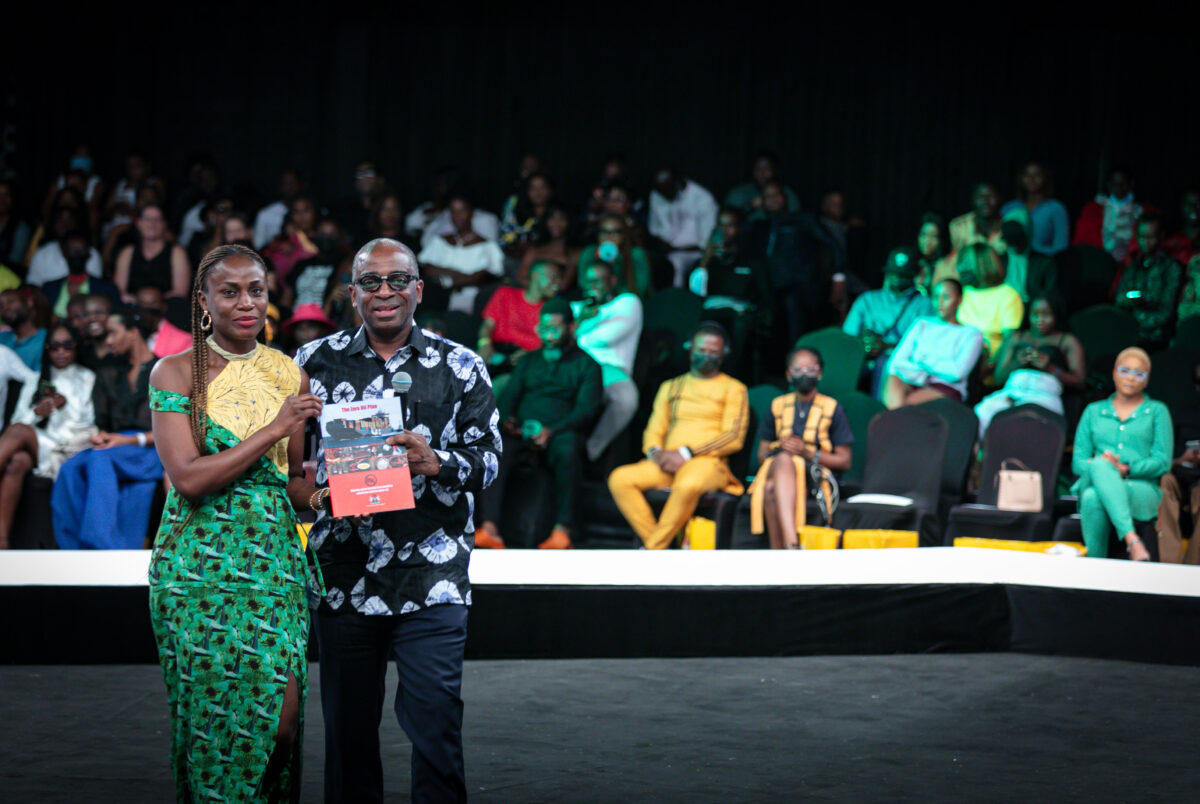
It is important that we build on the sector’s capacity to contribute to Africa’s economy by strengthening existing business (ess) and access to funding is key. This year, Style House Files secured a N500,000,000 (Five Hundred Million Naira) grant to support the fashion industry through a strategic partnership with Nigeria Export Promotion Council (NEPC) under the Export Expansion Facility Programme (EEFP) umbrella. The grant was awarded to thirty (30) fashion brands who have been consistent with solidifying their retail footprint in key cities and digital destinations. The funds are currently being disbursed. The plan moving into the new year is to continue to seek and secure funding opportunities for fashion businesses in the content.
2. Retail/Access to Market:
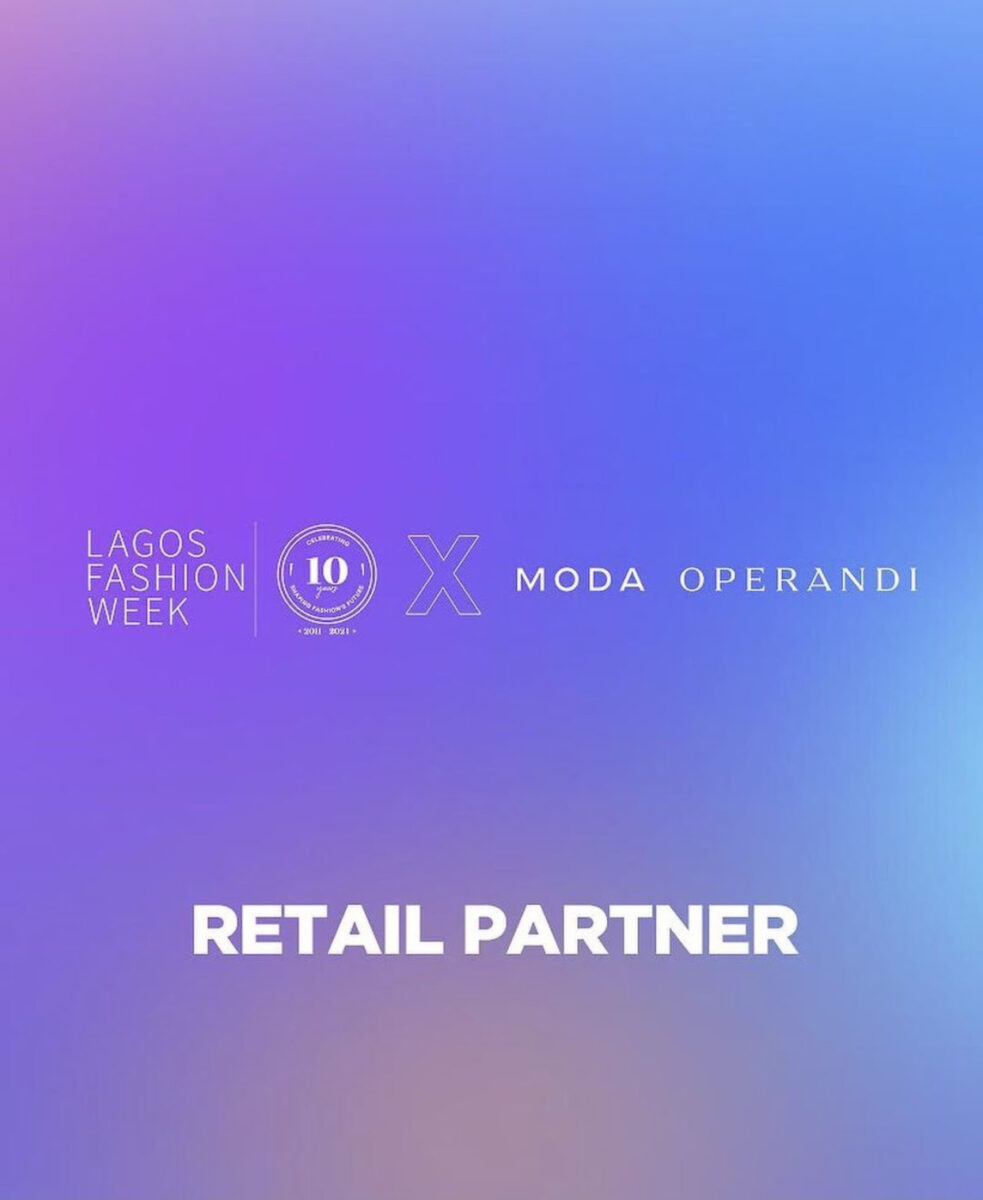
Positioning designers for access to market opportunities has been a key objective for Style House Files & Lagos Fashion Week, since the platform’s launch in 2011. Ensuring African designers are able to leverage a globalized commercial landscape and to support the national agenda to promote non-traditional export and galvanize forex revenue in creative industries. With this as a backdrop, the Lagos Fashion Week Presents platforms facilitated designers' trade show participation in NY Now New York, Coterie New York, WWDMAGIC in Las Vegas, Pitti SUPER in Milan, Tranoi in Paris, Liberty Fairs, Le New Black amongst others. In addition, collaborating to execute Pop-up’s and trunk shows across physical & digital retail destinations such as: Afrikea, Selfridges, The Shop at Bluebird, The Place London, Koirbird and Moda Operandi. The success of the recent #LagosFW x Moda Operandi Trunkshow that closed on the 18th of December, reaffirms the commercial viability of African brands at home and abroad.
3. Manufacturing:
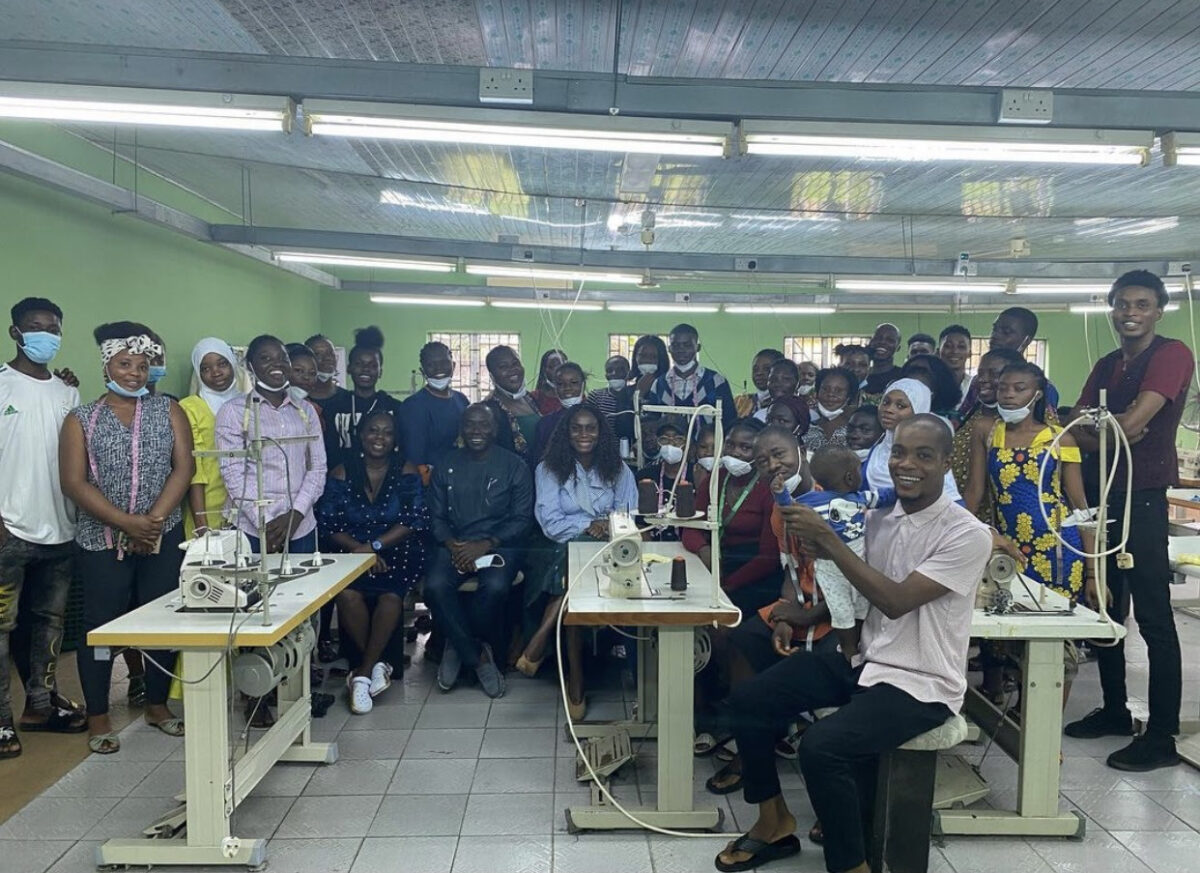
Firmly establishing 0ur local manufacturing industry to service designers within and beyond the continent will be a gamechanger for the African fashion industry. This is why with SHF Trains, the focus shifted to a critical component of the industry, manufacturing, especially as producing in commercial quantities was a challenge for designers. By collaborating with NEPC, SHF has been training and developing capacity in apparel manufacturing in the country. This year, SHF Trains reached the 3,000 mark of women and youths who have been trained under the initiative and provided with channels that assure access to employment through grants and schemes. There has been a significant increase in the number of production for export in line with the NEPC vision.
4. Sustainability and Circular Fashion:
COVID-19 exposed the inadequacies of the traditional linear economy that requires a continuous flow of resources, often sourced from far away areas of the globe, which in the long run, depletes natural resources and creates large amounts of waste. In addition, when a major disruption like the pandemic occurs, this linear model collapses, with local businesses lacking the resilience to recover. A lot of emphasis is being placed on adopting a local circular economy which aims at every level to reduce, reuse and recycle waste. It is for this reason we’ve been running the Green Access initiative for 3 years now, focused on emerging fashion talent with partners Fashion Revolution & the Ellen MacArthur Foundation. The idea is to encourage and educate budding designers on the need for economically, environmentally and socially sustainable fashion businesses. In March 2020, we launched Woven Threads, a first-of-its kind digital showcase in Africa that focused on circular design, traditional craft and the need to adopt a more responsible approach to producing fashion on the continent. Woven Threads returned with Volume II in April 2021. We want to solidify what we have built in the last 11 years by working within our community to build lasting structures and proffer solutions that can help strengthen an ecosystem where everyone matters.
5. Technology:
The rise and rise of the digital economy is something we can no longer ignore and the role that technology plays in that is very deeply rooted. We’ve seen an unprecedented amount of brands, including luxury stores, refine their ecommerce and digital strategy as a useful tool for the future of fashion. In 2021, technology proved critical in facilitating Lagos Fashion Week’s activation events: Woven Threads II, Lagos Fashion Week Digital & Fashion Business Series. Beyond facilitating events, the year also saw the industry expand its ideas of the possibilities that exist with the meeting of technology and fashion. The 2021 Lagos Fashion Week saw the deployment of blockchain technology for the first time, with Global Fashion Exchange and Pop Swap, which enabled us to host the first hybrid Swap Shop in Africa.
6. Education:
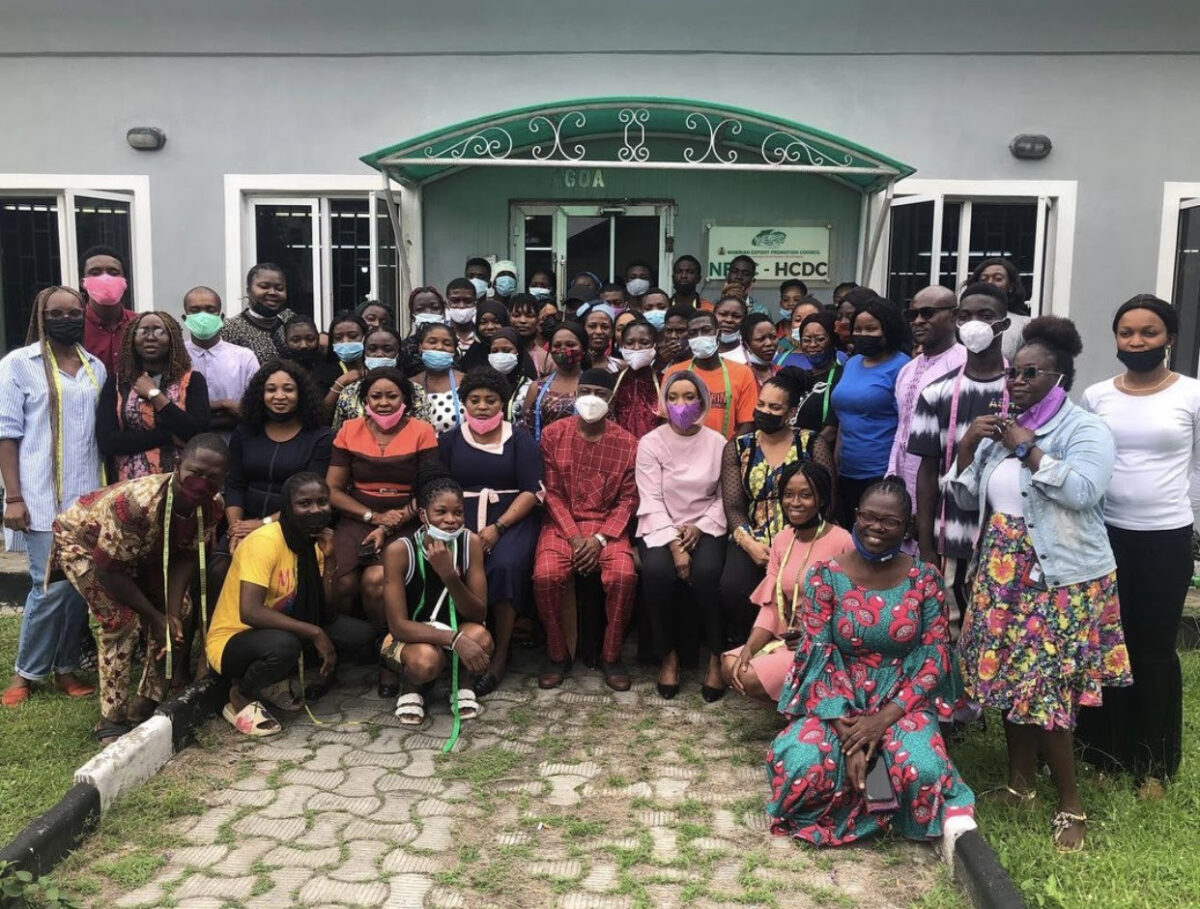
We deploy a model that is focused on consistently building capacity for the apparel manufacturing sector by working with key stakeholders across the continent to facilitate access to knowledge acquisition, skills / knowledge exchange and a decolonised curriculum for our schools. Our vision for SHF Trains and SHF Prism online workshops is to increase the number of skilled workers in the garment manufacturing and creative sector, positively impact job creation and generate additional sources of income. We are very passionate and committed to education and train people around the clock. Part of the goals is to ensure that in the creative, apparel and garment-manufacturing sector in Nigeria, there is access to a pool of people or a workforce that they can hire, employ and work with. For a country of Nigeria’s size with such a huge youth and women population, providing demonstrable and employable skills has become critical.
We believe our collective task for the next decade is a reinforcement of our joint commitment to the continent by adding value to creativity, developing our knowledge sharing and skills acquisition base and equipping our youth with the right education and skills for job and wealth creation with sustainability as the key driver.
We are grateful to our partners, sponsors and our community for their support over the last 11 years. Thank you for journeying with us, especially in what has been a challenging two years.
